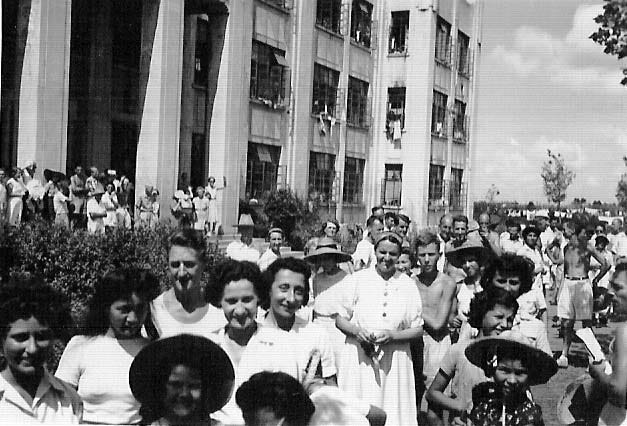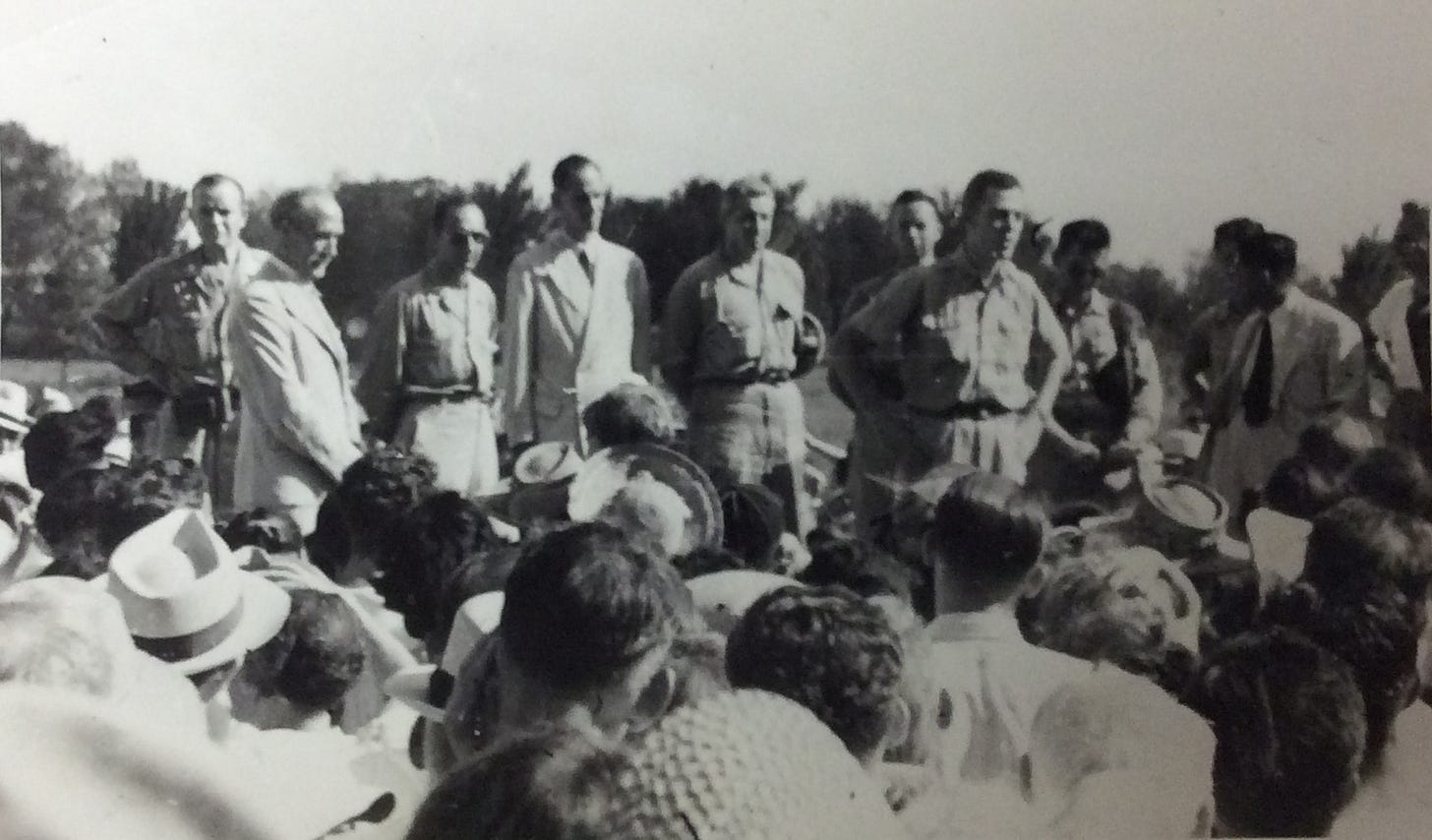In the morning of August 21, the entire Operation Sparrow team assembled in front of the Marble Hall to meet the Japanese soldiers who would take them to the civilian internment camps. In defiance of the agreement made the previous day, they were in full uniform as American soldiers, sailors, and Marines, with holstered sidearms, none more conspicuously than Peter Kim with his Smith & Wesson Victory Model revolver in a shoulder holster. Major Preston Schoyer’s gamble paid off as the Japanese allowed his team to board their cars and trucks and transported them to the internment camps without any attempt to enforce the rules that their superiors had tried to impose.
In the Chapei internment camp, a former university campus that held more than 1,000 civilians, most of them Americans, a jubilant crowd greeted the Operation Sparrow team. The Japanese guards had abandoned the place after their Emperor’s surrender announcement and Emile Fontanel’s order to give up control over the internment camps, leaving the people inside to fend for themselves. The entire team received a heroes’ welcome, cheered with the roar of hundreds of voices, swarmed by grateful men, women, and children, and shaking countless hands held out to them. Many recognized Peter Kim, once their lifeline to the outside world, among their liberators.
The team went to a small platform to address the assembled people of the camp. After Schoyer explained the end of the war, the situation in Shanghai, and what to expect in the upcoming days, the crowd began to chant a demand for Peter Kim to speak. Schoyer stepped aside, and Peter came forward, with no idea what to say. He said the first words about his liberated compatriots that came to mind, words that applied more than a little to himself and his family:
“Any fool can be taught to fire a gun, fly a plane or drive a tank. The real heroes of this war are you and many like you who, though defenseless, remained steadfast and loyal in the face of a brutal enemy. To the extent we can, we shall restore you to your homes and property. God bless each of you for bearing your hardships for so long. Thank you!”
A more solemn reception greeted them at the next internment camp. The Lincoln Road camp had been created in June 1944 to confine the last Western civilians not yet interned: some 300 elderly, disabled, and sick persons who previously had been allowed to stay in their homes with caregivers. More than a tenth of them had since died, and dozens were so ill that the Japanese had moved them out into hospitals. The only able-bodied people were a few dozen men and women transferred from other camps to serve as caregivers, among them a lone POW, a Marine private from the Marine Security Guard detachment of the U.S. Embassy in Beijing who had been captured in December 1941. The Operation Sparrow team took him with them back to the Marble Hall after their work at Lincoln Road was finished.
The team continued the liberation of the internment camps scattered around Shanghai, a few each day, until the last one had been liberated on August 23. The next day, they tracked down almost 200 interned civilians and four American POWs held in Shanghai hospitals with tuberculosis and other serious illnesses.

On August 28, Operation Sparrow moved into a new headquarters: the Park Hotel, a Shanghai landmark that, at twenty-two stories, was the tallest building in Shanghai—or anywhere in Asia—into the 1960s. The team secured its entire thirteenth through fifteenth floors to use as a second base more centrally located in downtown Shanghai. The Japanese occupied the lower floors and the neighboring buildings, and their soldiers and marines continued to control the city, standing fast in their bases and patrolling the streets. With the formal surrender of Japan still several days away, little had changed in Shanghai aside from the liberation of its civilian internment camps.
Surrounded by thousands of Japanese troops in a city of four million people, hundreds of miles from the nearest friendly forces, Peter Kim and the 10 men of Operation Sparrow struggled to feed the more than 7,000 civilians and POWs under their care and to restore their ruined lives.
This series previews my upcoming book Victory in Shanghai: A Korean American Family’s Journey to the CIA and the Army Special Forces, whose publication is expected by June 1, 2025. You can pre-order it now through Potomac Books, an imprint of the University of Nebraska Press, at this link, on Amazon at this link, or through your favorite local independent bookseller.
Subscription to this series is free.
If you know anyone who may be interested in this series, please share it with them.







